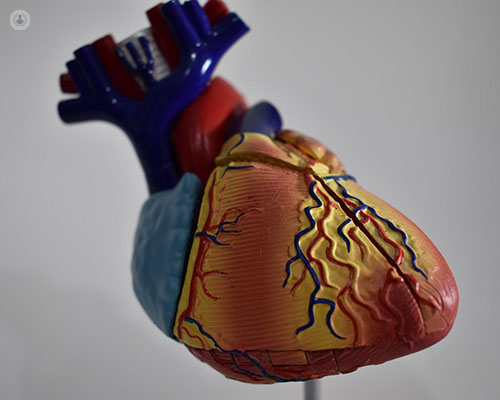What are the benefits of a private ECG?
Written in association with:An ECG, or electrocardiogram, is a simple, painless test that shows the heart’s rhythm and electrical activity. It is used to help detect several different heart conditions, but if done through the NHS there is often a waiting list.
However, there is a solution: Venturi Cardiology. Venturi Cardiology can offer you a prompt ECG, often with same day appointments available, giving you the peace of mind you need when experiencing chest pain.
Why might someone consider a private ECG?
Each year, 1-2% of adults in the UK attend primary care with chest pain for the first time. However, in most cases, a GP will only record symptoms during a first consultation and not attribute them to specific causes. As a result, it can take a long time to identify the causes of your chest pain if you go down the route of NHS diagnosis and treatments.

However, if your symptoms worry you or significantly impact your life, you might not want to wait for results. One option is to have the test completed privately to understand more quickly the root cause of the chest pains.
In this article, we’ll explore some of the benefits of a private ECG.
When should I seek a diagnosis for my chest pain?
Chest pain is a severe symptom that shouldn’t go ignored for long. If you're feeling discomfort in your chest, in isolation, or alongside other symptoms, you should see a doctor and seek a diagnosis as soon as possible.
The following symptoms should act as a red flag to signal that it is time to see a cardiologist:
- Worsening shortness of breath
- Discomfort or pressure on your chest that isn’t going away
- Swelling in your legs
- Feeling faint
- Racing heart/heart palpitations
These symptoms can indicate heart disease or heart failure, so it is vital to see a cardiologist as soon as possible.

What is an ECG?
An electrocardiogram (ECG) is a simple test that checks for your heart’s electrical activity and rhythm. During the test, sensors are attached to your skin that detects the signals produced by your heart as it beats. Then, a machine records these signals in real-time.
ECGs commonly contribute to the diagnosis of possible heart problems. They can investigate chest pain causes and can help detect conditions such as:
There are a few reasons to consider a private ECG before considering other tests.
What are the benefits of a private ECG?
- A private cardiologist can usually see you in just a few days. The same tests on the NHS may take longer as you might be placed on a waiting list. It might be several weeks before an NHS doctor can see you.
- ECGs are one of the most affordable and economical options. Pricing can start at as little as £85 for a private test.
- Because an ECG gives immediate results, cardiologists can review the test's findings quickly. Often, you might get initial answers during the consultation.
Book a private ECG today
Chest pain is not a symptom you should ignore. Instead, you should act as soon as possible to prevent more serious conditions from developing.
At Venturi Cardiology, we understand how vital ease of mind is. That’s why you can book an appointment with us today to undergo a private ECG and get answers more quickly. Our affordable private pricing allows you to get the diagnostics you need when it matters. In addition, we're happy to consult you after your test to work out a treatment plan, further diagnostics, or help plan lifestyle changes to improve your heart’s health.
Venturi Cardiology is a leading cardiology clinic based in Warrington. The clinic boasts some of Britain’s leading cardiologists, ensuring all patients receive the best treatment possible. If you would like to book an ECG at Venturi Cardiology, or have any concerns regarding your heart, you can book a consultation today via their Top Doctors profile.


